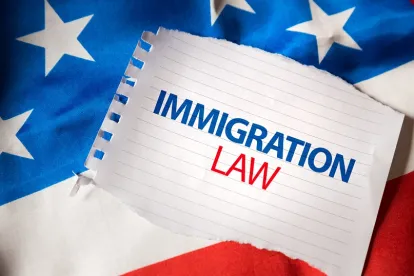Efforts to reform our nation’s immigration system through legislation are frequently contentious and can become embroiled in larger legislative debates that make the passage of a bill into law a complicated process and, often, an unlikely prospect. With broad immigration reform legislation frequently stalled, several presidents have sought to advance change through executive orders. However, even that seemingly expedient path can face hurdles in the form of protests and lawsuits. As President Donald Trump’s latest executive orders make their way through the court system, one of the federal agencies charged with carrying out immigration laws and policies, the Department of Homeland Security (DHS), is considering options to avoid those hurdles by harnessing the power of smaller-scale changes to immigration policies—particularly those that may not require congressional action—as a means of effecting larger-scale change on the nation’s immigration system as a whole. The agency’s efforts encompass several areas of which employers should be aware.
H-1B Requests for Evidence
A fundamental requirement of the H-1B program is that the position offered be a “specialty occupation.” This means that the job offered must be a professional-level position that would normally require attainment of a four-year college or university degree. Moreover, the degree requirement must be in an appropriate or specific subject area. While, historically, requests for evidence (RFE) from U.S. Citizenship and Immigration Services (USCIS) challenging whether an H-1B petition has successfully met the “specialty occupation” requirement have not been unusual, this summer USCIS implemented a new twist. A twist, it is worth noting, that does not appear to have any basis in law.
Recent RFEs pose a catch-22 by raising the claim that (1) a Level 1 (entry-level) wage is not appropriate for the sponsored position in an H-1B petition given the complexity of the job duties described, or (2) the position is not a specialty occupation because the Level 1 wage indicates that the position is entry level. Using wage level assignment as a means to challenge a job's qualifications for H-1B assignment is unprecedented. Indeed, several of the occupations challenged by these RFEs are recognized by regulation as specialty occupations and, therefore, could simultaneously be both a specialty occupation and an entry-level position.
The long-term effect of these RFEs and their ability to withstand judicial scrutiny, should it come to that, is unclear. What is clear is that, with no change to the existing laws, USCIS is implementing its own adjudicatory standards for H-1Bs, resulting in delayed case processing, increasingly frequent denials, and uncertainty for individuals and businesses. In light of this, employers may want to closely scrutinize wage levels for H-1B assignments.
Work Authorization for Spouses of H-1B Workers
The Employment Authorization for Certain H-4 Dependent Spouses final rule amended DHS regulations by extending eligibility for employment authorization to certain H-4 dependent spouses of H-1B nonimmigrants who are seeking employment-based lawful permanent resident status. The proposed policy has been challenged in court for several years. Citing the president’s executive order to “Buy American and Hire American,” DHS now appears ready to move forward in court after numerous requests for abeyance and seems likely to roll back the policy entirely.
J-1 Cultural Exchange Visas
The J-1 Exchange Visitor Program fosters global understanding through educational and cultural exchanges. Exchange visitors are expected to return to their home country upon completion of their program in order to share their exchange experiences. Summer work-travel programs help bring in over 100,000 students to the United States each summer, and smaller au pair programs allow for foreign guests to live in American households to provide childcare while participating in cultural exchanges with their host families. Viewing the program as a threat to U.S. workers and their economic interests, the administration is looking to reduce or eliminate certain categories of the J-1 visa, not through legislation, but rather through decreased funding and more stringent adjudication.
Interviews for Employment-Based Green Card Applicants
While requiring all green card applicants to be interviewed is already provided for in the law, historically USCIS has waived the interview for all but a few categories of applicants. On August 28, 2017, the administration announced that applicants applying for green cards based on their U.S. employment will be subject to the interview requirement. This directive is likely to lead to a substantial slowdown in the permanent residency process for immigrants legally employed in the United States, and the end result could be a significant reduction in overall legal immigration.





 />i
/>i

